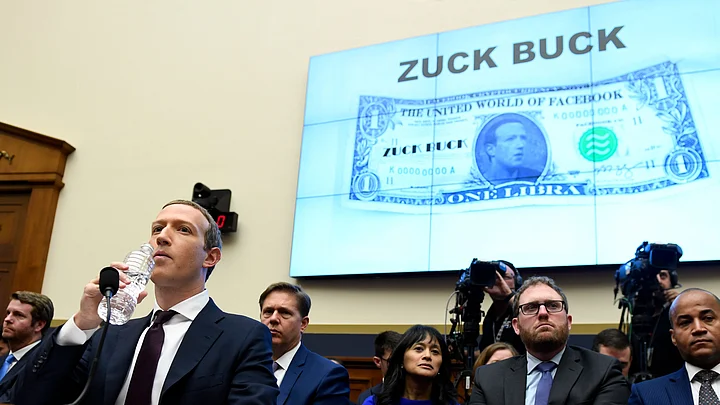Facebook CEO Mark Zuckerberg endured hours of prickly questioning from lawmakers Wednesday as he defended the company's new globally ambitious project to create a digital currency while also dealing with widening scrutiny from US regulators.
The immediate focus of the hearing by the House Financial Services Committee was the project for the currency, to be called Libra.
Zuckerberg took pains to reassure lawmakers that he wouldn't allow Facebook to move forward without explicit approval from all US financial regulators.
Still, a number of members of the House Financial Services committee were not convinced.
Rep. Maxine Waters, the California Democrat who chairs the House Financial Services Committee, said that Facebook’s cryptocurrency project Libra “create many concerns” and argued that maybe Facebook should be broken up.
On the Republican side, Rep. Ann Wagner of Missouri asked Zuckerberg why several high-profile corporations have recently departed the Libra project.
Zuckerberg, momentarily at a loss for words, noted that “it’s a risky enterprise.” While the hearing is focused on the digital currency, the full range of Facebook’s policies, conduct and market dominance is attracting congressional attention.
It's the Facebook chief's first testimony to Congress since April 2018.
The company seems to spark public and official anger at every turn these days, from its shift into messaging services that allow encrypted conversations to its alleged anticompetitive behaviour to its refusal to take down phony political ads or doctored videos.
Lawmakers from both parties and top regulators — including Treasury Secretary Steven Mnuchin and Federal Reserve Chairman Jerome Powell — have criticised Facebook’s plan for the new currency, to be called Libra.
They warn that it could be used for illicit activity such as money laundering or drug trafficking.
Waters previously asked Facebook to not move forward with the currency and a digital wallet called Calibra that would be used with it.
Waters has called Libra "a new Swiss-based financial system" that potentially is too big to fail and could require a taxpayer bailout.
Several high-profile companies that had signed on as partners in Facebook's governing association for Libra have recently bailed, spelling a potentially rough road for the project. But many experts don't believe it's doomed.
Zuckerberg, in written testimony prepared for the hearing, aimed to reassure lawmakers that his company won't try to evade financial regulators as it readies Libra.
Facebook “will not be a part of launching the Libra payments system anywhere in the world unless all US regulators approve it,” he said.
That's a stronger statement than Facebook official David Marcus made to Congress in July, when he said the company will not activate Libra until it has "fully addressed regulatory concerns and received appropriate approvals." Marcus leads the Libra project.
Zuckerberg is striving to defend Libra and alleviate concerns that the currency could sidestep regulators.
Analysts say Libra could avoid regulation and launch in countries where it's not getting pushback, but this doesn't appear to be Facebook's intention.
Instead, Zuckerberg is pushing an optimistic vision of Libra and what it could mean for people around the world who don't have access to bank accounts.
There is concern among regulators that the massive reserve created with money used to buy the new currency could supplant the Fed and destabilize the global financial system, and that consumers could be hurt by Libra losses.
Zuckerberg also played the China card in his remarks, urging regulators to act quickly "While we debate these issues, the rest of the world isn't waiting. China is moving quickly to launch similar ideas in the coming months," he said.
(At The Quint, we question everything. Play an active role in shaping our journalism by becoming a member today.)
